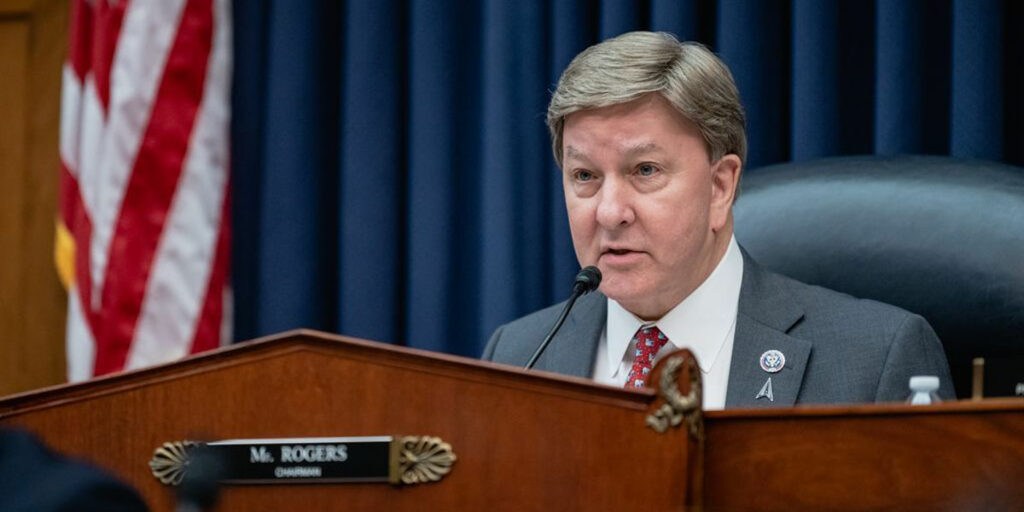Congressman Mike Rogers (AL-03) continues to be a leading national proponent for creating a new military branch for space.
In the overnight hours of Thursday morning, Rogers and Congressman Jim Cooper (D-TN) during a meeting of the House Armed Services Committee (HASC) introduced an amendment during the National Defense Authorization Act (NDAA) mark-up for Fiscal Year 2020 that would create the “Space Corps.”
The Rogers-Cooper amendment was unanimously adopted and the NDAA was approved by the committee, sending the measure to the full House.
“I am thrilled my colleagues on HASC recognize the importance of focusing on this proposal. As I have said time and time again, the future of warfighting will be fought in Space. Russia and China are surpassing us in Space capabilities and we must have a military branch focused solely on this mission,” Rogers said in a statement on the importance of meeting the threats that China and Russia pose in space.
This is an initiative Rogers has been tirelessly advocating for over the last few years, predating President Donald Trump’s creation for the “Space Force.”
“I also applaud President Trump’s vision and unwavering support in creation of this military branch. Our national security truly depends on it,” Rogers added.
Defense News reported Rogers advised that the Rogers-Cooper amendment approved by the HASC on Thursday is “almost identical” to an idea previously offered by Rogers that the same committee approved during the FY 2018 NDAA markup.
While it is similar to and in line with Trump’s vision for the Space Force, Space Corps would fall under the Air Force, like the Marine Corps currently falls under the Navy.
The Space Force proposal would have separated the new branch out entirely and necessitated more bureaucracy and spending, according to Space Corps proponents.
Cooper, speaking on Space Corps, explained, “It is not a $13 billion expenditure, a gold-plated plan like had been proposed to us by the secretary of the Air Force. It is instead a reorganization so that space professionals can be properly recognized for their skill and ability and promoted.”
Space Corps as proposed by the Rogers-Cooper amendment would create its own streamlined acquisition system, a four-star commandant on the Joint Chiefs of Staff and its own civilian undersecretary.
The Secretary of Defense would be required to provide a report on Space Corps’ structure and personnel needs by 2021. The corps, if created, would experience a transition period that begins January 1, 2021 and ends no later than December 31, 2023.
Initially, Air Force personnel would be transferred to create the new branch, although there would exist the ability for Navy and Army members to volunteer to move into the corps.
“This is the initial standing up of the service. We can come back next year and look at bringing those professionals in,” Rogers said of requiring Navy and Army space personnel to transfer to Space Corps, according to The Hill. “This is going to be an evolving product over the next four to five years and we’re going to have time to deal with those.”
Assuming the proposal survives the House floor, there will still be more hurdles to overcome.
The Rogers-Cooper amendment differs from the proposal in a Senate committee’s NDAA version, which backs the formation of a new service outside the Air Force, fully funded at $72.4 million, but still deviates from the White House’s Space Force proposal.
The House and Senate are expected to reconcile their competing versions of the bill before it can head to Trump’s desk.
Additionally, as the NDAA is authorizing legislation, separate appropriations legislation would also have to back this new military branch before it could become a reality.
Sean Ross is a staff writer for Yellowhammer News. You can follow him on Twitter @sean_yhn













